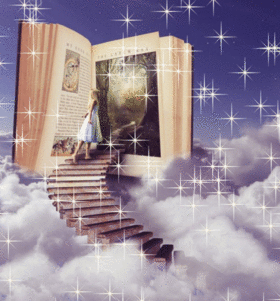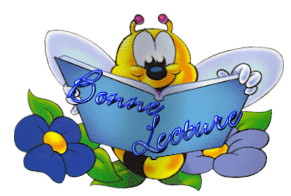Difference between revisions of "Language/Modern-greek-1453/Culture/Literature"
| Line 1: | Line 1: | ||
[[File:53790.gif|thumb|none]] | [[File:53790.gif|thumb|none]] | ||
== | ==Λογοτεχνί''α== | ||
{| class="wikitable" | {| class="wikitable" | ||
|«Το μυαλό δεν είναι ένα δοχείο που πρέπει να γεμίσει, αλλά μια φωτιά που πρέπει ν’ ανάψει.» | |«Το μυαλό δεν είναι ένα δοχείο που πρέπει να γεμίσει, αλλά μια φωτιά που πρέπει ν’ ανάψει.» | ||
«The mind is not a pot to fill, but a fire that must light. » | |||
Πλούταρχος : Plutarch (Around 45 - 120 AD) | |||
Πλούταρχος : | |||
|} | |} | ||
| Line 49: | Line 48: | ||
Στη ζωή τα πράγματα δεν είναι συνήθως όπως φαίνονται και η λογοτεχνία θα βρίσκεται πάντα εδώ για να μας το θυμίζει. | Στη ζωή τα πράγματα δεν είναι συνήθως όπως φαίνονται και η λογοτεχνία θα βρίσκεται πάντα εδώ για να μας το θυμίζει. | ||
== | ==Literature== | ||
[[File:53808.gif|thumb|none]] | [[File:53808.gif|thumb|none]] | ||
The term "Literature" defines the written and oral products of the artistic discourse. | |||
We accept as a preliminary assumption that literature is the art of words, the art of craft or, otherwise, the art of language, | |||
Literature is one of the arts that uses expressive means as music uses sound, painting colors. | |||
Literary work is any written or pedigreed text that has nothing to do with any branch of science. | |||
It is not meant to impart knowledge. The literary text can be defined as a text that does not serve a practical purpose. | |||
For example, information on a subject. Thus the literary text differs, for example, from a scientific text. | |||
The purpose of Literature is to purify passionate pleasure, refinement or idealization. | |||
Writing is essentially the very formation of events, their imprinting. | |||
formation | |||
It is the charisma, the demonstration of their unifying point and, at the same time, a perpetual flirtation with all the parts of speech. | |||
The term "Literature" appears for the first time in the 12th century. A.D'''. with the importance of rhetorical use of speech, culture. | |||
Literature sweeps the reader's mouth, like a chocolate. When the book is over, his sweet memories will accompany him for a long time. | |||
Nowadays, literature also draws thoughts from philosophy. Poets such as Seferis and Elytis vaccinate their poetic discourse | |||
with reflections borrowed from Greek philosophy and creating their own poetic universe, in which ideas are of prime importance. | |||
If we still insist on reading literature in our time, it is because we believe in what it offers us. | |||
We will never be able to change the world with poetry and novels. | |||
But it is worthwhile to try their beneficial effect on our life and character. | |||
To the question of how literature can change our lives, we have to answer that literature mainly teaches us the way. | |||
It makes us less sure of ourselves, less melodramatic and blatant, | |||
less naive and more lenient, but more noble in the use of language, more insightful in human relationships. | |||
In life, things are not as usual, and literature will always be here to remind us. | |||
Revision as of 15:04, 30 August 2018
Λογοτεχνία
| «Το μυαλό δεν είναι ένα δοχείο που πρέπει να γεμίσει, αλλά μια φωτιά που πρέπει ν’ ανάψει.»
«The mind is not a pot to fill, but a fire that must light. » Πλούταρχος : Plutarch (Around 45 - 120 AD) |
Με τον όρο Λογοτεχνία ορίζονται τα γραπτά και προφορικά προϊόντα του έντεχνου λόγου.
Δεχόμαστε ως προκαταρκτική παραδοχή ότι λογοτεχνία είναι η τέχνη των λέξεων, η ρηματική τέχνη ή, αλλιώς, η τέχνη της γλώσσας,
Η Λογοτεχνία είναι μία από τις τέχνες που χρησιμοποιεί ως εκφραστικό μέσο το λόγο όπως η μουσική χρησιμοποιεί τον ήχο, η ζωγραφική τα χρώματα.
Λογοτεχνικό έργο είναι ένα κάθε γραπτό κείμενο πεζό ή έμμετρο που δεν έχει καμία σχέση με κανένα κλάδο της Επιστήμης.
Δεν έχει σκοπό να μεταδώσει γνώσεις.Το λογοτεχνικό κείμενο μπορεί να οριστεί ως κείμενο που δεν εξυπηρετεί κάποιον πρακτικό σκοπό.
Για παράδειγμα την πληροφόρηση για κάποιο θέμα. Έτσι το λογοτεχνικό κείμενο διαφέρει, για παράδειγμα, από ένα επιστημονικό κείμενο.
Σκοπός της Λογοτεχνίας είναι η κάθαρση των παθών τέρψη, η τελειοποίηση ή η εξιδανίκευση.
Η γραφή είναι στην ουσία η ίδια η συγκρότηση των γεγονότων, η αποτύπωσή τους.
Είναι το χάρισμα, η κατάδειξη του ενοποιητικού τους σημείου και ταυτόχρονα ένα αέναο φλερτ με όλα τα μέρη του λόγου.
Ο όρος Λογοτεχνία εμφανίζεται για πρώτη φορά τον 12ο αι. μ.Χ. με τη σημασία της ρητορικής χρήσης του λόγου, της καλλιέπειας.
Η λογοτεχνία γλυκαίνει το στόμα του αναγνώστη, όπως μια σοκολάτα. Όταν τελειώσει το βιβλίο, οι γλυκές αναμνήσεις του θα τον συντροφεύει για πολύ καιρό ακόμα.
Στις μέρες μας η λογοτεχνία αντλεί επίσης στοχασμούς από τη φιλοσοφία. Ποιητές όπως ο Σεφέρης και ο Ελύτης εμβολιάζουν τον ποιητικό τους λόγο
με στοχασμούς που δανείζονται από την ελληνική φιλοσοφία και δημιουργούν το δικό τους ποιητικό σύμπαν, μέσα στο οποίο οι ιδέες έχουν πρωταρχική θέση.
Αν επιμένουμε ακόμα να διαβάζουμε λογοτεχνία στην εποχή μας είναι γιατί πιστεύουμε σε αυτό που μας προσφέρει.
Δε θα καταφέρουμε ποτέ να αλλάξουμε τον κόσμο με την ποίηση και τα μυθιστορήματα.
Αξίζει όμως τον κόπο να δοκιμάσουμε την ευεργετική επίδρασή τους στη ζωή και στον χαρακτήρα μας.
Στην ερώτηση πώς η λογοτεχνία μπορεί να αλλάξει τη ζωή μας, οφείλουμε να απαντήσουμε πως η λογοτεχνία κυρίως μας μαθαίνει τον τρόπο.
Μας κάνει λιγότερο σίγουρο για τον εαυτό μας, λιγότερο μελοδραματικούς και κραυγαλέους,
λιγότερο αφελείς και ευκολόπιστους αλλά και πιο ευγενείς στη χρήση της γλώσσας, πιο διορατικούς στις ανθρώπινες σχέσεις.
Στη ζωή τα πράγματα δεν είναι συνήθως όπως φαίνονται και η λογοτεχνία θα βρίσκεται πάντα εδώ για να μας το θυμίζει.
Literature
The term "Literature" defines the written and oral products of the artistic discourse.
We accept as a preliminary assumption that literature is the art of words, the art of craft or, otherwise, the art of language,
Literature is one of the arts that uses expressive means as music uses sound, painting colors.
Literary work is any written or pedigreed text that has nothing to do with any branch of science.
It is not meant to impart knowledge. The literary text can be defined as a text that does not serve a practical purpose.
For example, information on a subject. Thus the literary text differs, for example, from a scientific text.
The purpose of Literature is to purify passionate pleasure, refinement or idealization.
Writing is essentially the very formation of events, their imprinting.
It is the charisma, the demonstration of their unifying point and, at the same time, a perpetual flirtation with all the parts of speech.
The term "Literature" appears for the first time in the 12th century. A.D. with the importance of rhetorical use of speech, culture.
Literature sweeps the reader's mouth, like a chocolate. When the book is over, his sweet memories will accompany him for a long time.
Nowadays, literature also draws thoughts from philosophy. Poets such as Seferis and Elytis vaccinate their poetic discourse
with reflections borrowed from Greek philosophy and creating their own poetic universe, in which ideas are of prime importance.
If we still insist on reading literature in our time, it is because we believe in what it offers us.
We will never be able to change the world with poetry and novels.
But it is worthwhile to try their beneficial effect on our life and character.
To the question of how literature can change our lives, we have to answer that literature mainly teaches us the way.
It makes us less sure of ourselves, less melodramatic and blatant,
less naive and more lenient, but more noble in the use of language, more insightful in human relationships.
In life, things are not as usual, and literature will always be here to remind us.

